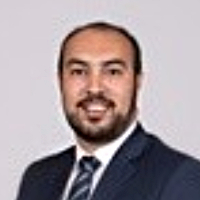
As our clients move through different stages of life, their financial situations are constantly changing. Although each life stage requires a different financial approach, the overarching goal is always protecting our clients’ wealth.
As a senior financial adviser working within the industry for 14 years, I’m passionate about helping clients achieve their unique financial goals. I’m always looking to further my knowledge through research and exposure. With such a range of specialties within the industry – from accounting to advising – networking with other professionals is a key strategy I use to develop my understanding. While accountants can assist with financial reporting, an adviser works strategically to bring these numbers to life. The benefit of these differences means the two fields can work collaboratively to complement one another, creating the optimal outcome for clients.
The importance of networking
Wealth is a complex field so it’s necessary for industry professionals to create strong networks. Collectively, we can provide our clients with a comprehensive solution by using our expertise to focus on their financial needs and offering the services of a trusted associate when a query or need falls outside this realm. However you like to connect with your network, whether it’s through LinkedIn or your local area, communicating with others is an important part of our role.
This is something I consistently do. Over time I’ve built a strong relationship with a trusted accountant. Through regular communication and providing insights I have been able to guide this accountant to look out for potential opportunities that may benefit his clients. For instance, once any of his clients reach the age of 60, he suggests the possibility of myself looking over their income and super. By doing this I’m able to provide advice regarding the transition to retirement strategies (TTR).
A particular client, referred to me by this accountant, was working full-time and earning $150,000 but not making additional contributions to superannuation. After reviewing the client’s objectives and assessing their financial circumstances, I was able to identify and help the client contribute an additional $10,000 to superannuation each year, minimising their income tax liabilities at the same time. I have now been working with this client for five years, seeing their superannuation grow and placing them in a better position to fund their retirement.
Understanding why different expertise is necessary
As a trusted adviser, it’s my role to identify any potential issues when it comes to my clients’ financial wellbeing. Clients often rely solely on accountants for a range of their financial needs, including handling their self-managed super fund (SMSF). While accountants have a range of knowledge, SMSF strategies may not necessarily fall within their expertise. So, it’s important for accountants to draw on their own network of advisers to ensure their clients get the best service possible and understand all the relevant legislation updates. For example, there have been recent revisions around contribution eligibility rules and there may shortly be increases in the contribution cap that accountants may not be aware of.
From 1 July 2020, contribution eligibility rules expanded with age restrictions lifting from 65 to 67, allowing many clients to further contribute to super without needing to meet the work test. From 1 July 2021 the annual concessional contribution cap is set to increase from $25,000 to $27,500. This means an increase in how much individuals can contribute to their super pre-tax. The non-concessional contribution cap, which is ultimately four times that amount, is also set to increase. While this was previously $100,000 it may soon increase to $110,000. Recognising changes in legislation and understanding how this can impact a client’s ability to contribute to superannuation is vital when assisting clients with building their wealth.
Conversely, there are also many ways an accountant provides valuable expertise that an adviser cannot. I was recently working with a couple who had previously established an SMSF. During our initial meeting we identified they were individual trustees of their fund. As a married couple with this type of trustee structure, this presented potential problems, particularly if one of them were to pass away. If this were to happen it would result in costly amendments, including changing the legal ownership of the assets. It may also cause issues with succession planning given the requirement for at least two trustees for an individual trustee structure. By working together with their accountant the clients amended the structure to a corporate trustee and ensured they had the right arrangement in place to manage their retirement savings – an area of finance I, or another adviser, was unable to assist with.
Working together: Clear communication is key
Clear communication between financial professionals is key when developing a mutually beneficial relationship. Whether it’s connecting via phone or regular email summaries, providing one another with relevant updates is vital when it comes to working to create the best client outcome.
The importance of communication is particularly important when sharing key information that the other professional would otherwise not have access to. This is the case with specific strategies like SMSFs. In the case of SMSFs, many steps are completed by the accountant including the preparation of the fund’s tax return, financial statements and audits. Clear communication between accountant and adviser is, therefore, vital for accurate strategic advice to be offered.
So, if it’s been a while since you had a chat with the financial advisers in your network, I recommend you pick up the phone or grab a coffee – you never know what you may learn, can share or how it can help your clients.
Scott Riddell, senior financial adviser, ANZ Private Bank & Advice
Never miss the stories that impact the industry.